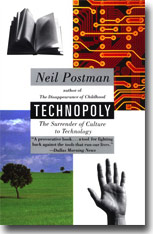By: J. Hampton Keathley, III , Th.M.
The great purpose of man, especially the believer in Christ, is to glorify God. “Whether, then, you eat or drink or whatever you do, do all to the glory of God” (1 Corinthians 10:31). Essential to our ability to glorify God is the knowledge of God and knowing Him personally in view of that knowledge.
The word “glory” in the Greek New Testament is doxa which means an opinion, an estimation, or reputation in which one is held. It refers to that which should accrue to God as praise, thanksgiving, obedience, reverence, and service because of who God is and what God does (past, present, and future). In other words, giving glory to God is tied in with the knowledge of God (revelation of God), and knowing God personally (response to God).
The Lord Jesus said in John 17:3, “And this is eternal life, that they may know Thee, the only true God, and Jesus Christ whom Thou hast sent.” The many names in Scripture constitute additional revelation of God’s character, His works, and His relationship to us based on His character and works. The names which God chose for Himself and which are ascribed to Him in the Word of God are additional revelations of the who and what of God that we may know and relate to God.
Note David’s declarations about God’s name and word in Psalm 138:1-2. God’s name declares much about His person, but it is God’s Word that reveals God and His name.
We know what God is like, not only by His perfections and works, but also by His names. They tell us many things about God’s care and concern for his own. This is one of the fascinating studies of Scripture. The various circumstances which bring forth each of the names of God are important.1
The Significance of
the Names of God in Scripture
In our twentieth century Western culture, personal names are little more than labels to distinguish one person from another. Sometimes nicknames are chosen which tell something about a person, but even this is a poor reflection of the significance of names in the Bible.
Unfortunately, to many the names God or Lord convey little more than designations of a supreme being. It says little to them about God’s character, His ways, and what God means to each of us as human beings. But in Scripture, the names of God are like miniature portraits and promises. In Scripture, a person’s name identified them and stood for something specific. This is especially true of God. Naming carried special significance. It was a sign of authority and power. This is evident in the fact that God revealed His names to His people rather than allowing them to choose their names for Him. This is also seen in the fact that God often changed the names of His people: Abram to Abraham, Sarai to Sarah, Jacob to Israel. Note also how this concept of authority and power is seen when Nebuchadnezzar changed the names of Daniel and his three friends.
The Name of God in General
There are a number of instances where no name of God is employed, but where simply the term “name” in reference to God is used as the point of focus:
(1) Abraham called on the name of the Lord (Gen. 12:8; 13:4).
(2) The Lord proclaimed His own name before Moses (Ex. 33:19; 34:5).
(3) Israel was warned against profaning the name of the Lord (Lev. 13:21; 22:2, 32).
(4) The name of the Lord was not to be taken in vain (Ex. 20:7; Deut. 5:11).
(5) The priests of Israel were to minister in the name of the Lord (Deut. 18:5; 21:5).
(6) The name of God is called “wonderful” in Judges 13:18.
(7) To call on the name of the Lord was to worship Him as God (Gen. 21:33; 26:25).
Consequently, from this we can conclude that such phrases as “the name of the LORD” or “the name of God” refer to God’s whole character. It was a summary statement embodying the entire person of God.2
When we turn to the New Testament we find the same. The name Jesus is used in a similar way to the name of God in the Old Testament:
(1) Salvation is through His name (John 1:12).
(2) Believers are to gather in His name (Matt. 18:20).
(3) Prayer is to be made in His name (John 14:13-14).
(4) The servant of the Lord who bears the name of Christ will be hated (Matt. 10:22).
(5) The book of Acts makes frequent mention of worship, service, and suffering in the name of Jesus Christ (Acts 4:18; 5:28, 41; 10:43; 19:17).
(6) It is at the name of Jesus that every knee will one day bow and every tongue confess that Jesus Christ is Lord (Phil. 2:10-11).
So, just as the name of God in the Old Testament spoke of the holy character of God the Father, so the name of Jesus in the New Testament speaks of the holy character of God the Son.3
Overview of the
Names of God in Scripture
(1) Elohim: The plural form of EL, meaning “strong one.” It is used of false gods, but when used of the true God, it is a plural of majesty and intimates the trinity. It is especially used of God’s sovereignty, creative work, mighty work for Israel and in relation to His sovereignty (Isa. 54:5; Jer. 32:27; Gen. 1:1; Isa. 45:18; Deut. 5:23; 8:15; Ps. 68:7).
Compounds of El:
* El Shaddai: “God Almighty.” The derivation is uncertain. Some think it stresses God’s loving supply and comfort; others His power as the Almighty one standing on a mountain and who corrects and chastens (Gen. 17:1; 28:3; 35:11; Ex. 6:31; Ps. 91:1, 2).
* El Elyon: “The Most High God.” Stresses God’s strength, sovereignty, and supremacy (Gen. 14:19; Ps. 9:2; Dan. 7:18, 22, 25).
* El Olam: “The Everlasting God.” Emphasizes God’s unchangeableness and is connected with His inexhaustibleness (Gen. 16:13).
(2) Yahweh (YHWH): Comes from a verb which means “to exist, be.” This, plus its usage, shows that this name stresses God as the independent and self-existent God of revelation and redemption (Gen. 4:3; Ex. 6:3 (cf. 3:14); 3:12).
Compounds of Yahweh: Strictly speaking, these compounds are designations or titles which reveal additional facts about God’s character.
* Yahweh Jireh (Yireh): “The Lord will provide.” Stresses God’s provision for His people (Gen. 22:14).
* Yahweh Nissi: “The Lord is my Banner.” Stresses that God is our rallying point and our means of victory; the one who fights for His people (Ex. 17:15).
* Yahweh Shalom: “The Lord is Peace.” Points to the Lord as the means of our peace and rest (Jud. 6:24).
* Yahweh Sabbaoth: “The Lord of Hosts.” A military figure portraying the Lord as the commander of the armies of heaven (1 Sam. 1:3; 17:45).
* Yahweh Maccaddeshcem: “The Lord your Sanctifier.” Portrays the Lord as our means of sanctification or as the one who sets believers apart for His purposes (Ex. 31:13).
* Yahweh Ro’i: “The Lord my Shepherd.” Portrays the Lord as the Shepherd who cares for His people as a shepherd cares for the sheep of his pasture (Ps. 23:1).
* Yahweh Tsidkenu: “The Lord our Righteousness.” Portrays the Lord as the means of our righteousness (Jer. 23:6).
* Yahweh Shammah: “The Lord is there.” Portrays the Lord’s personal presence in the millennial kingdom (Ezek. 48:35).
* Yahweh Elohim Israel: “The Lord, the God of Israel.” Identifies Yahweh as the God of Israel in contrast to the false gods of the nations (Jud. 5:3.; Isa. 17:6).
(3) Adonai: Like Elohim, this too is a plural of majesty. The singular form means “master, owner.” Stresses man’s relationship to God as his master, authority, and provider (Gen. 18:2; 40:1; 1 Sam. 1:15; Ex. 21:1-6; Josh. 5:14).
(4) Theos: Greek word translated “God.” Primary name for God used in the New Testament. Its use teaches: (1) He is the only true God (Matt. 23:9; Rom. 3:30); (2) He is unique (1 Tim. 1:17; John 17:3; Rev. 15:4; 16:27); (3) He is transcendent (Acts 17:24; Heb. 3:4; Rev. 10:6); (4) He is the Savior (John 3:16; 1 Tim. 1:1; 2:3; 4:10). This name is used of Christ as God in John 1:1, 18; 20:28; 1 John 5:20; Tit. 2:13; Rom. 9:5; Heb. 1:8; 2 Pet. 1:1.
(5) Kurios: Greek word translated “Lord.” Stresses authority and supremacy. While it can mean sir (John 4:11), owner (Luke 19:33), master (Col. 3:22), or even refer to idols (1 Cor. 8:5) or husbands (1 Pet. 3:6), it is used mostly as the equivalent of Yahweh of the Old Testament. It too is used of Jesus Christ meaning (1) Rabbi or Sir (Matt. 8:6); (2) God or Deity (John 20:28; Acts 2:36; Rom. 10:9; Phil. 2:11).
(6) Despotes: Greek word translated “Master.” Carries the idea of ownership while kurios stressed supreme authority (Luke 2:29; Acts 4:24; Rev. 6:10; 2 Pet. 2:1; Jude 4).
(7) Father: A distinctive New Testament revelation is that through faith in Christ, God becomes our personal Father. Father is used of God in the Old Testament only 15 times while it is used of God 245 times in the New Testament. As a name of God, it stresses God’s loving care, provision, discipline, and the way we are to address God in prayer (Matt. 7:11; Jam. 1:17; Heb. 12:5-11; John 15:16; 16:23; Eph. 2:18; 3:15; 1 Thess. 3:11).

